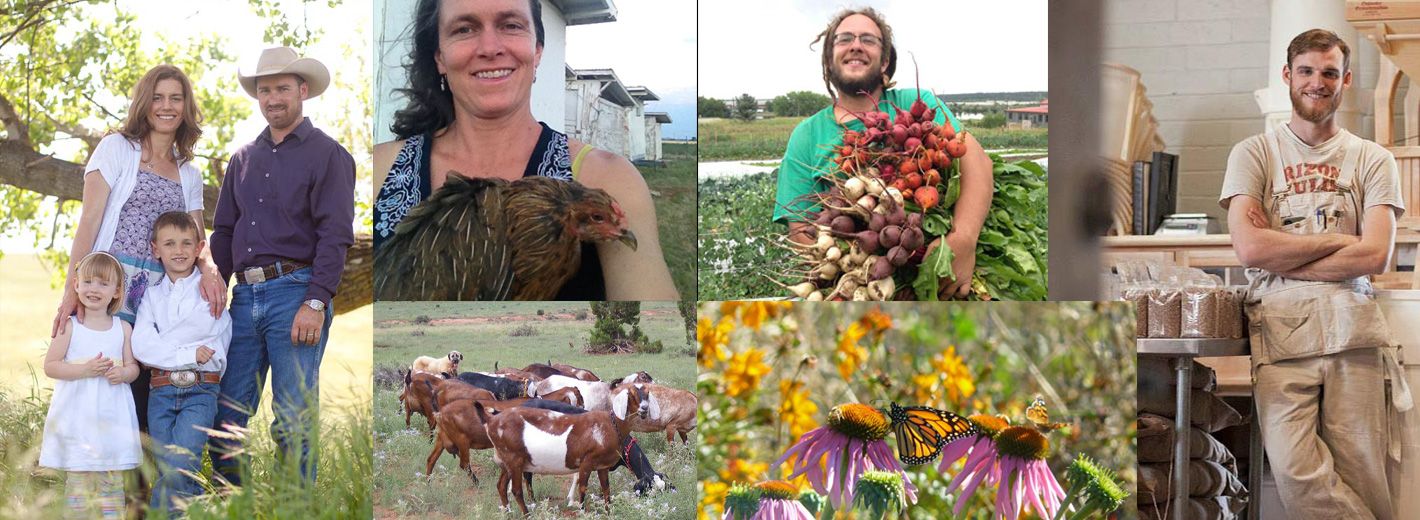
Bon Appétit Fork to Farm Grant Finalists: Southwest Region
This region’s needs are as diverse as its farms: a cheese “cave” for a goat dairy, a pasta machine for a heritage grain grower, a passive solar greenhouse for a cold-weather farm, fencing for a rancher, and irrigation improvements for a parched grower.
Bon Appétit teams and guests at our locations in Arizona, California, Colorado, New Mexico, Utah, Texas, and Wyoming will get to vote for their two favorites from these five finalists on September 23, our 10th annual Eat Local Challenge. (To see the other regional finalists, use the links at the top of this page.)
GRANT RECIPIENTS
GUEST PICK: Open Space Meats LLC, Newman, CA
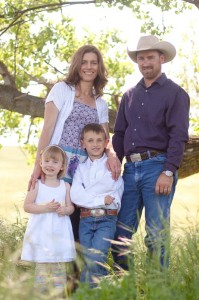 All-natural grass-fed beef, 100% pasture raised and finished.
All-natural grass-fed beef, 100% pasture raised and finished.
Project: Additional ranch fencing to allow high-intensity rotational grazing (the Savory method), which better utilizes grass and improves soil health.
Details: We are in the planning stage of a high-intensity, short-duration grazing program for our ranch land in Hornitos, CA. This method, also known as the Savory method, more closely mimics grazing herds of wild herbivores. By grazing and then resting our grasslands in a rotational grazing system we can better utilize our available forages, add nutrients to the soil, and increase our biodiversity and stocking rates. A lot of research indicates that high-intensity rotational grazing programs work and will make our business more sustainable.
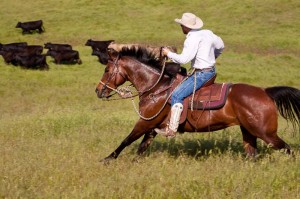
To correctly do this we will need to invest in interior (electric) fencing and plumbing projects to ensure that we can keep cattle in the appropriate pastures and that the animals have a supply of fresh water. This will reduce the amount of “loafing” the cattle do in riparian areas and help us keep our surface waters clean while providing for healthier grasslands.
(Optional) How has working with Bon Appétit been helpful to you and your business?
Bon Appétit has been a great partner for giving us experience with and exposure at high-visibility venues. Also by working with Bon Appétit chefs we have been able to more easily balance our production by having some flexibility in the menus to utilize all the cuts on a beef carcass.
STAFF PICK: Black Mesa Ranch, Snowflake, AZ
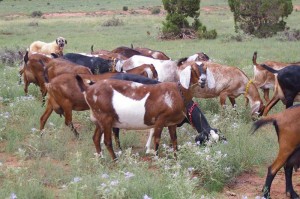
Small Nubian goat dairy in northern Arizona that turns the rich high-desert goat milk into farmstead artisan cheeses and handmade confections. Certified Humanely Raised and Handled since 2006; completely “off-grid,” generating 100% of our own electricity.
Project: A commercial refrigeration unit and additional solar power generating capacity that will expand and improve our capacity for making aged goat cheeses.
Details: Arizona’s premier goat-cheese dairy, Black Mesa Ranch (BMR) has been providing fresh goat cheeses since 2003. We are a two-person (husband-and-wife) operation. BMR is completely “off-grid,” generating 100% of our own electricity, primarily from solar and wind sources. Because of our remote location and lack of access to retail customers or farmers’ markets, we sell primarily wholesale to restaurants and natural food stores in the state. We have been a Bon Appétit Farm to Fork supplier for more than seven years.
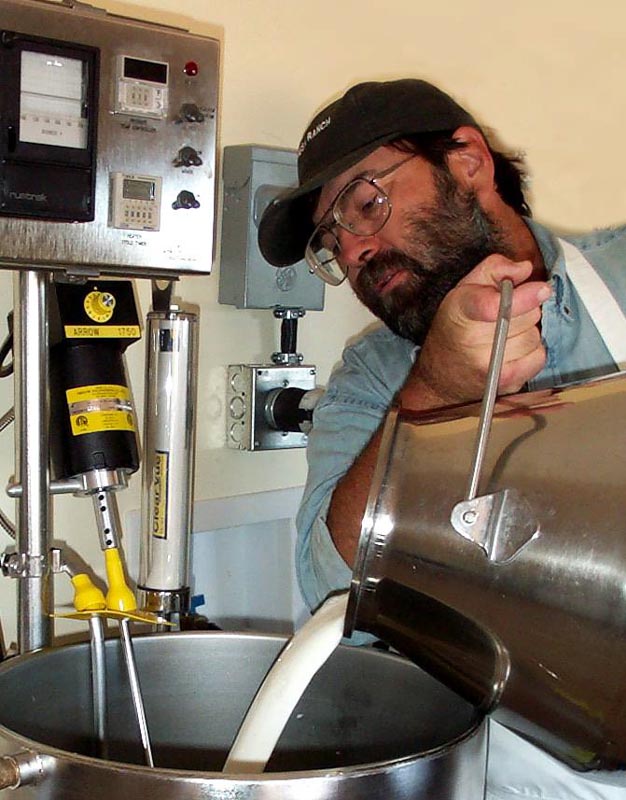 In the past few years, a number of new goat dairies have opened in the state, and all of them are now offering the same types of fresh cheeses that we have been making for more than 10 years. To maintain our distinct position in the marketplace and to take advantage of our skills and greater depth of cheese-making experience, we have begun to offer a variety of aged cheeses. These cheeses have been met with great enthusiasm and praise (and sales!) by our customers. So much so that we are having trouble meeting demand.
In the past few years, a number of new goat dairies have opened in the state, and all of them are now offering the same types of fresh cheeses that we have been making for more than 10 years. To maintain our distinct position in the marketplace and to take advantage of our skills and greater depth of cheese-making experience, we have begun to offer a variety of aged cheeses. These cheeses have been met with great enthusiasm and praise (and sales!) by our customers. So much so that we are having trouble meeting demand.
We would like to triple our current aged-cheese output, but our challenge is twofold: First, we need to increase our cheese-aging capacity through the acquisition of a commercial refrigeration unit that we can adapt into a “cave” for optimum cheese curing, affinage, and storage. Second, we will need to increase our solar power–generating capacity in order to support the electric needs of the new “cheese cave” unit. Also, a few new cheese forms would keep production logistics running smoothly. Incredibly, most of this could be accomplished with the $5,000 from the grant (and we’ll happily make up the small difference with our own money).
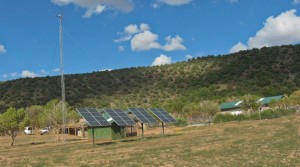 Added bonus: The solar array portion of this proposal is eligible for a state and federal tax credits. That will help offset the taxable aspect of this grant award and will help ensure that more of the money goes directly to the project.
Added bonus: The solar array portion of this proposal is eligible for a state and federal tax credits. That will help offset the taxable aspect of this grant award and will help ensure that more of the money goes directly to the project.
(Optional: How has working with Bon Appétit been helpful to you and your business?)
We are proud to be a part of Bon Appétit’s Farm to Fork program and look forward to many more years of our partnership.
GRANT FINALISTS
Hayden Flour Mills, Tempe, AZ
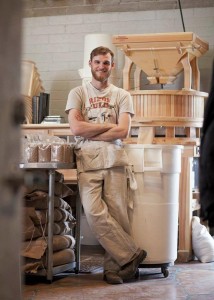 Providing freshly stone-milled heritage and ancient grains and flours to Arizona’s chefs and home bakers.
Providing freshly stone-milled heritage and ancient grains and flours to Arizona’s chefs and home bakers.
Project: A professional pasta extruding machine, to expand our product line beyond fresh flours by transforming our locally grown heritage and ancient grains into unique and beautiful pastas, like a brilliant red fusilli made of red Hopi amaranth, a nutty farro bucatini, or a Blue Beard durum fettuccine.
Details: It’s a well-kept secret that the top Italian pasta makers buy Arizona durum by the boatload to make their pasta, because desert durum is famous for its quality and brilliant yellow color. This fact gave us the confidence to start our own crazy project three years ago — growing high-quality heritage grains in the desert and stone-milling them on an old-world Austrian mill. Today we grow 12 varieties of heritage grains — wheat, barley, oats, and amaranth, to name a few. Each grain has story to tell, sometimes going back thousands of years.
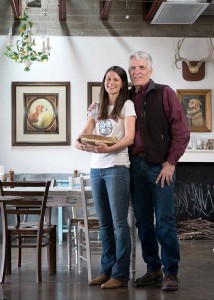
With a pasta extruder, we believe that we could transform these specialty grains into a pasta that would rival the best Italian brands. Ancient and heritage grain pastas would give a whole new palette of flavors and colors to local chefs. Imagine a brilliant red fusilli made of red Hopi amaranth, a nutty farro bucatini, a desert durum and chardonnay flour spaghetti, or a Blue Beard durum fettuccine.
As we already have the capability to grow and mill these amazing grains, adding a large-scale pasta extruder to our lineup will easily expand our product line and grow our business.
(Optional) How has working with Bon Appétit been helpful to you and your business?
Bon Appétit, and specifically Café Allegro at the Musical Instrument Museum, has been instrumental in our growth since the beginning of our small food business, not only by bringing attention to our local product through award-winning food but working with us to innovate and improve our product. We are constantly amazed at the ways our product shows up on their menus and their wholehearted commitment to serving the best of local.
Golden Acre Farm, Lakewood, CO
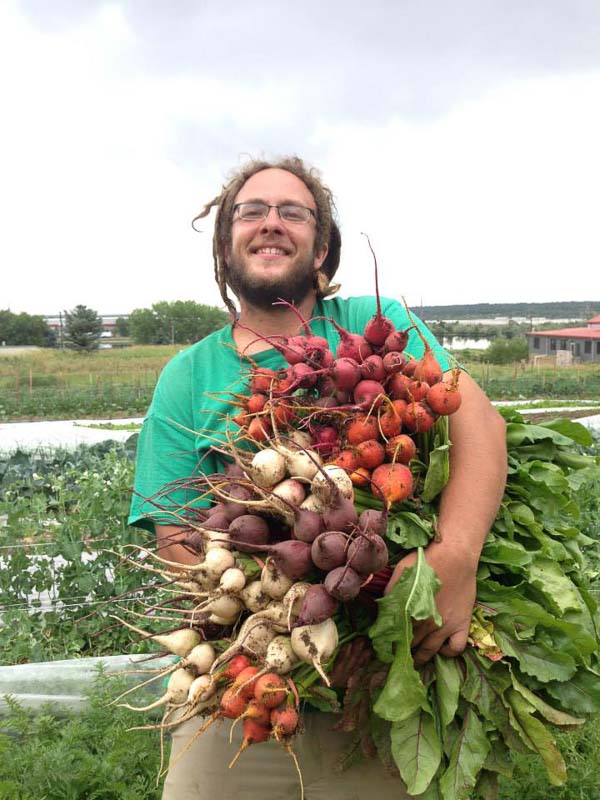 A diversified market farm and CSA specializing in sustainably grown vegetables, fruits, and beautiful cut flowers.
A diversified market farm and CSA specializing in sustainably grown vegetables, fruits, and beautiful cut flowers.
Project: Construction and operation of a passive solar greenhouse and aquaponics system to assist the farm in growing organic produce year-round and to grow plant starts for the outdoor farming season.
Details: Currently, Golden Acre Farm does not have a greenhouse, making it impossible to provide our customers with organic, sustainably raised produce year-round. The lack of a greenhouse space also creates issues with starting plants indoors at the beginning of the growing season resulting in a delayed harvest for some of our crops.
A fully functional greenhouse with an aquaponics component will allow us to grow specialty herbs and vegetables and to raise fresh tilapia during the cold Colorado months. Utilizing cold-weather growing techniques associated with passive solar greenhouses and developing an aquaponics system catering to the growing conditions of tilapia, we will essentially develop a brand-new, winter-oriented business for Golden Acre Farm. As the cold settles in come November, Golden Acre Farm will shift focus to indoor production of cold-hardy vegetables and herbs such as broccoli, cauliflower, beets, carrots, kale, chard, thyme, oregano, lemon balm, chives, Chinese leeks, and many others. Tilapia will also be raised and distributed to our Denver-based customers year-round through the implementation of an organic aquaponics system.
Materials for the greenhouse will be purchased used if possible to save money and to promote the idea of recycling and community sustainability. Reusing structures with large, costly materials will promote our values of sustainability and will help offset some of the additional costs of erecting a greenhouse and building a small-scale aquaponics system. If finding a “used” greenhouse seems improbable, we will make purchases of materials from Grower’s Supply, a division of FarmTek, who are the leaders of commercial and private greenhouse materials and construction. In following our values we will construct a small-scale aquaponics systems with at least 75 percent recycled materials. Solar power will be used for any electricity needed for the aquaponics system, such as water pumps and filters.
With your help we could grow and supply our customers with over 5,000 pounds of additional organic produce and herbs and 2,000 pounds of sustainably raised tilapia each and every year.
(Optional) How has working with Bon Appétit been helpful to you and your business?
My partnership with [Executive Chef] Glenn Babcock at Regis University in Denver, CO, has been nothing short of spectacular. Possessing a similar view of healthy, local, and sustainably raised food, Glenn and I have developed a strong symbiotic relationship that will continue to flourish with mutual support. I deeply appreciate what Glenn and Bon Appétit have done for Golden Acre Farm.
Riverdog Farm, Guinda, CA
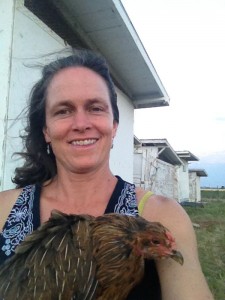 Certified Organic vegetables, melons, stone fruit, almonds, walnuts, and pastured pork and poultry on 500 acres in Capay Valley.
Certified Organic vegetables, melons, stone fruit, almonds, walnuts, and pastured pork and poultry on 500 acres in Capay Valley.
Project: Irrigation system enhancements, including the purchase and installation of flow meters for each well to help us monitor and conserve water usage.
Details: Riverdog Farm uses ground water to irrigate many of our crops. During the arid summer months in our Northern California region, we irrigate the crops with drip line, overhead sprinklers, and some furrow irrigation systems.
During times of low winter rainfall such as 2013 and 2014, the need to monitor and conserve water becomes paramount. By installing flow meters at each pump/well water source, we will be able to improve the tracking, monitoring, and recording of our water usage with the goal of total water usage reduction. The approximate cost, including installation labor and purchase of meters, for each flow meter is $1,000. We will be installing five flow meters.
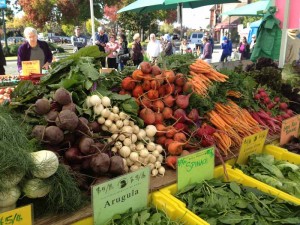 (Optional) How has working with Bon Appétit been helpful to you and your business?
(Optional) How has working with Bon Appétit been helpful to you and your business?
A) Connects staff with crop varieties and food production via farm tour/lunch. B) Links RDF to institutional kitchens. Your goal of buying at least 20 percent of ingredients from small food producers helps RDF tap into new market outlets. Bon Appétit’s pioneering buy-local efforts help RDF sell to hospitals and schools. C) RDF considers onsite restaurant company needs when crop planning.